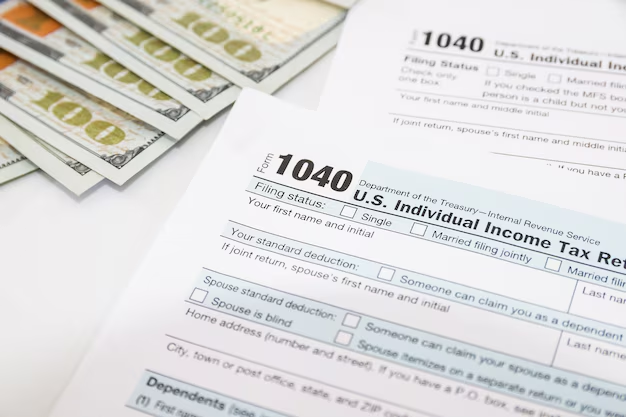Understanding Property Tax in Texas: What You Need To Know
If you're considering buying property in Texas or already own one, it's essential to familiarize yourself with how property tax works in this vast and diverse state. Texas is known for its attractive housing market and economic opportunities, but understanding property taxes is crucial for effective financial planning. In this guide, we’ll break down key aspects of property tax in Texas, providing you with clear insights and practical advice.
What's the Basis of Property Taxes in Texas?
Property taxes in Texas are primarily used to finance local services such as public schools, infrastructure, and emergency services. Unlike some states, Texas does not have a state-level income tax, making property tax a significant source of state revenue.
Key Components of Texas Property Taxes
- Appraised Value: Property taxes are based on the appraised value of the property, which reflects its market value as determined by local appraisal districts.
- Tax Rate: Local governments set the tax rates annually. These rates can vary widely between counties and even municipalities within the same county.
- Exemptions: Homeowners may qualify for various exemptions that can reduce their taxable property value, thereby reducing the amount of tax owed.
How Are Property Taxes Calculated?
The calculation of property taxes in Texas involves multiplying the appraised value of your property by the local tax rate and then applying any exemptions you qualify for. Here’s how it works:
Step-by-Step Calculation
- Step 1: Determine the appraised value of your property.
- Step 2: Identify the total tax rate applicable to your property. This includes county, city, school district, and other relevant rates.
- Step 3: Calculate the basic tax by multiplying the appraised value by the combined tax rate.
- Step 4: Subtract any exemptions you qualify for to find your net taxable amount.
Common Property Tax Exemptions in Texas
For many homeowners, understanding and applying for exemptions can significantly lower property tax bills. Here are some common exemptions applicable in Texas:
- Homestead Exemption: This exemption can reduce your appraised value by a significant amount for your principal residence.
- Age 65 or Older Exemption: Seniors are eligible for additional exemptions that can further reduce the taxable value of their property.
- Disabled Person Exemption: Those with disabilities may also qualify for extra exemptions.
- Veteran Exemption: Veterans and their families might receive significant reductions or full exemptions on their property taxes.
Geographic Variations in Property Tax Rates
Texas is a large state with varied environments—from big cities like Houston and Dallas to rural areas. Tax rates are dependent on local needs and can differ greatly across the state.
Urban vs. Rural Areas
- Urban Areas: Typically have higher tax rates but more services and infrastructure investments.
- Rural Areas: Tend to have lower tax rates, reflecting fewer public services and lower property values.
Practical Tips for Managing Property Taxes
Navigating property taxes can be complex, but understanding some simple strategies can help ease the burden:
💡 Quick Tips
- ● Stay Informed: Keep up-to-date with local government tax rate announcements or changes.
- ● Review Your Appraisal: Always check the appraisal for accuracy and contest it if you believe it’s too high.
- ● Apply for Exemptions: Make sure to apply for all exemptions you’re eligible for.
- ● Plan for Payments: Consider splitting your tax bill into two payments to avoid a large single payment.
Potential Changes and Trends in Texas Property Tax
Understanding trends and potential changes in legislation regarding property tax can prepare you better for future fluctuations.
Legislative Changes
- Recent discussions in the Texas legislature have often focused on reforming how appraisals are assessed and capping annual tax increases.
- Any new laws may affect how much you pay or how rates are set.
Economic Trends
- Texas’ growing population influences property values and, consequently, property taxes.
- Economic shifts, such as changes in employment rates or market demand, can also impact appraisals and tax rates.
Summary: Staying Ahead of Property Taxes in Texas
Here's an at-a-glance overview to help you manage and navigate Texas property taxes:
| 🏠 Key Area | ✨ Tips |
|---|---|
| Appraised Value | Verify the accuracy, contest if needed. |
| Tax Rate | Stay updated on annual changes. |
| Exemptions | Apply to reduce taxable value. |
| Payment Plans | Consider splitting your payments. |
| Future Changes | Monitor legislative efforts affecting tax policies. |
With these insights and strategies in hand, navigating property taxes in Texas can become more manageable, allowing you to focus on enjoying your property ownership.
Property taxes in Texas may seem daunting at first, but a deeper understanding can transform this obligation into a manageable aspect of property ownership. By keeping informed, utilizing available exemptions, and staying abreast of legislative changes, you can effectively plan and manage your property tax obligations. Whether you’re a new homeowner or have owned property in Texas for years, these insights will equip you to handle your property taxes with confidence and clarity.

Related Topics
- Are Property Taxes Tax Deductible
- Can I Get a Property Tax Refund
- Can I Pay Property Tax Online
- Can I Pay Property Tax With Credit Card
- Can Property Tax And Condo Fee Be Deducted In Maryland
- Can You Claim Property Taxes On Your Income Tax
- Can You Claim Property Taxes On Your Tax Return
- Can You Claim Your Property Taxes On Your Income Tax
- Can You Pay Property Tax Monthly
- Can You Totally Not Pay Property Tax Texas
